
Italy's artistic, cultural and gastronomic heritage is truly immense and allows us to designate numerous interesting destinations to spend a wonderful weekend, in the company of family, friends or a special someone.
This list contains 20 Italian cities that can be visited in a weekend, a day or over a weekend.
Northern Italy
1 - Como, Lombardy
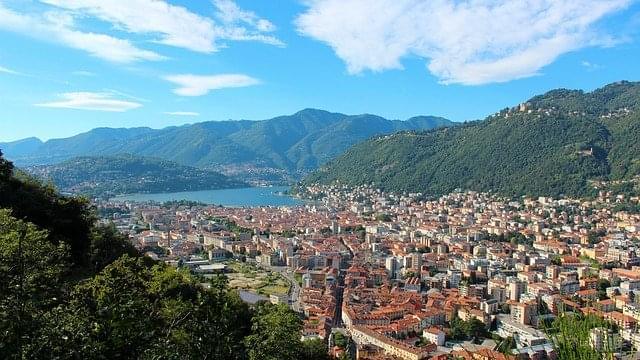
What to see: the Silk Museum to learn all about the textile tradition of this industrious Lombard town. Como is home to splendid examples of Italian artistic and architectural rationalism such as the Novocomum, the Casa Giuliani Frigerio, the War Memorial and the former Casa del Fascio, all designed by Italian architect Giuseppe Terragni. Also worth a visit are the Duomo, Palazzo Broletto, seat of the municipality, Baradello Castle and the splendid Villa Olmo.
SEE ALSO: Como: what to see, where to eat and what to do in the evening
Weekend ideas in and around Como: villages and treasures of Lake Como
From Como you can move towards the lake and spend a weekend of 2-3 days among the coastal villages and monumental villas: Tremezzina with its Villa del Balbianello, Tremezzo with Villa Carlotta, Bellagio, the Pearl of the Lake, and Menaggio, with its lakeside promenade full of flower gardens and palm trees. And again, for the more romantic, Varenna, with its walkway suspended over the lake known as the'passeggiata dell'amore'.
To move between one village and another, you can also use the charming and romantic boats. As a base town we recommend Como, Menaggio or Lecco.
SEE ALSO: 10 Things to See Around Lake Como
Best time: Summer for the climate and events, such as the Varenna Lake Festival (July)
Where to stay: Hotels and b&b from €44.00 per room - see offers
2 - Trieste, Friuli-Venezia Giulia

What to see: Piazza Unità d'Italia, Miramare Castle, San Giusto Castle and the historic cafés frequented by Saba, Joyce and Svevo, as well as the Bora Museum.
SEE ALSO: What to see in Trieste
Weekend ideas in and around Trieste: Postumia Caves and Predjama Castle
Trieste is located right on the border with Slovenia: you can take advantage of a weekend to visit the nearby Postojna Caves and Predjama Castle, about 50 km away.
The Postojna Caves are a karstic complex connected to Predjama Castle, located right inside a karstic cave. The caves can be easily visited thanks to an internal train that follows a path of stalactites, stalagmites, arches and limestone formations in almost Baroque shapes.
Theroute is about 5 km and takes less than 2 hours. Watch out for the temperature because it is very cold in the caves (about 8-10°). The cost of admission varies from €14.00 for children to around €24.00 for adults.
Best time of year: enjoyable all year round. Summer (May-Sept) is preferable for the Postojna Caves.
Where to stay: Hotels and b&b from €50.00 per room - see offers
3 - Genoa, Liguria

What to see: Besides the aquarium, don't miss a visit to the National Antarctica Museum and the Museo del Mare, Piazza De Ferrari with its fountain, the sumptuous palaces and the Carlo Felice Theatre.
SEE ALSO: What to see in Genoa
Weekend ideas in and around Genoa: Portofino and the Gulf of Tigullio
A weekend in Genoa is an unmissable opportunity to discover the wonders of the Ligurian territory. If you don't want to go as far as the border of the Riviera di Levante, in the well-known area of the Cinque Terre, you can linger in the Tigullio area, between Camogli, Portofino and Rapallo, passing by the unique San Fruttuoso Abbey. An area of romantic charm, ideal for couples and families, made up of pastel-coloured houses and bays with romantic names, such as the Baia del Silenzio, and enchanted valleys like the Valle dei Mulini.
In Portofino, the Brown Castle is a must-see, while in Camogli, stop to visit the Abbey of San Fruttuoso and the statue of Christ 15 metres underwater!
SEE ALSO: Excursions from Genoa: the best day trips around Genoa
Best period: spring and summer. A good occasion is the Regatta of the Ancient Maritime Republics, held every four years on a day between the end of May and the beginning of July.
Where to stay: Hotels and b&b from €64.00 per room - see offers
4 - Turin, Piedmont

What to see: Mole Antonelliana, Egyptian Museum, Cathedral, Cinema Museum, Royal Palace, Valentino Park.
SEE ALSO: What to see in Turin
Weekend ideas in and around Turin: Venaria Reale and the Savoy residences
The Reggia di Venaria Reale is only 15 kilometres away and can be reached in less than an hour thanks to the dedicated GTT Venaria Express line, which connects the centre of Turin directly with the Reggia, a UNESCO World Heritage Site.
Besides the Venaria Reale, other important Savoy residences are the Castello di Moncalieri, the Palazzina di Caccia di Stupinigi, the Castello di Agliè and the Castello della Mandria. To visit more than one in a day, the advice is to rent a car (average daily cost €40.00) and move around freely, creating your own itinerary.
SEE ALSO: Excursions from Turin: the best day trips around Turin
Best period: Intermediate seasons or for events (Book Fair in May, iTorino Film Festival late November/early December, Luci d'Artista November/December/January).
Where to stay: Hotels and b&b from €49.00 - see offers
5 - Bergamo, Lombardy

What to see: Piazza Vecchia, Palazzo della Ragione, Civic Tower, Basilica of Santa Maria Maggiore, Cathedral.
SEE ALSO: What to see in Bergamo
Weekend ideas in and around Bergamo: Excursion to Lake Iseo
On a weekend in Bergamo, don't miss a day at Lake Iseo, 50 kilometres from the city. To enjoy an entire day around the lake, the best solution is to rent a car and move around freely. Here you can take various hikes and walks on the many paths, with numerous stops and refuges where you can refresh yourself. There is also the possibility of hiring bicycles (from €3.00). And there is no shortage of activities on the water: you can rent a speedboat (from €75.00), a sailboat (from €120.00) and for the more sporty, even canoes and SUPs (from €10.00).
Alternatively, you can visit the many villages and small towns along the shores of the lake, learn about their culture and immerse yourself in their food and wine traditions.
SEE ALSO: Excursions from Bergamo: the best day trips around Bergamo
Best period: from spring to mid-autumn, when all activities, including water activities, can be enjoyed. The main events are the Bergamo Film Meeting (March) and the Festival Opera Donizzetti (November/December)
Where to stay: Hotels and b&b from €64.00 - see offers
6 - Verona, Veneto

What to see: Arena di Verona, Juliet's House, Piazza delle Erbe, Piazza Bra, Piazza dei Signori, Torre dei Lamberti, Basilica di San Zeno Maggiore, Ponte di Castelvecchio.
SEE ALSO: What to see in Verona
Weekend ideas in and around Verona: Peschiera, Sirmione and Lake Garda
To dedicate a day to the eastern side of Lake Garda and the towns of Peschiera and Sirmione, we recommend you rent a car, so that you are free of timetables and constraints, or travel by train: from Verona to Peschiera there are direct trains every 40 minutes and the journey time is just 14 minutes (ticket cost €3.60 one way). From Peschiera to Sirmione you can instead take the direct bus line LN026 which will take you to your destination in about 20 minutes (ticket cost €1.30 one way).
Peschiera del Garda and Sirmione are two small, quaint villages on Lake Garda, two quiet towns where you can spend a day of sightseeing and relaxation.
SEE ALSO: Excursions from Verona: the best day trips in the area
Best period: between spring and mid-autumn, when temperatures are pleasant and days are long and sunny. For Verona, Carnival time and Valentine's Day
Where to stay: Hotels and b&b from €57.00 - see offers
Central Italy
City | Best period | Weekend idea |
|---|---|---|
Ferrara, Emilia-Romagna | from April to July and September | Ravenna and Riviera Parks |
Lucca, Tuscany | from July to November | Montecatini Terme and Pistoia |
Ancona, Marche | from April to October | Fabriano and Frasassi Caves |
Urbino, Marche | from April to October | Excursion to San Marino |
Pisa, Tuscany | June | Volterra and San Gimignano |
Viterbo, Lazio | July | Lake Bolsena and Tuscia Viterbese |
Perugia, Umbria | July, October, December | Assisi, Spello and Lake Trasimeno |
7 - Ferrara, Emilia-Romagna

What to see: Castello Estense, Palazzo dei Diamanti, Palazzo Schifanoia, Cathedral and museum, Via delle Volte, Casa Romei Museum, Archaeological Museum, Municipal Palace.
SEE ALSO: Ferrara guide - what to see, where to eat and what to do in the evening
Weekend ideas in and around Ferrara: Ravenna and Mirabilandia
You can reach Ravenna from Ferrara comfortably by direct train, which will take you there in just over an hour (€6.65 each way). In this city we absolutely recommend you see the Mausoleum of Galla Placidia, the Basilica of San Vitale, the Basilica of Sant'Apollinare Nuovo and the Mausoleum of Theodoric.
To reach the Mirabilandia park you will still have to go as far as Ravenna, and from there take the shuttle bus that connects the city to the amusement park. This is sure to be a day of fun, with rides, shows, and merriment! Perfect even if travelling with children. Ticket cost €29.90 if purchased online (surcharge at the box office)
Best period: for amusement parks the warm season. The main events in Ferrara are the Palio (May), the Kite Festival (April), the Ferrara sotto le Stelle music festival (June/July) or the Basker's Festival (August)
Where to stay: Hotels and b&b from €57.00 - see offers
8 - Lucca, Tuscany

What to see: Guinigi Tower, Piazza dell'Anfiteatro, Cathedral of San Martino, Church of San Michele in Foro, Basilica of San Freviano, Musa di Lucca, Palazzo Pfanner, Pinocchio Park.
SEE ALSO: Lucca guide - what to see, where to eat and what to do in the evening
Weekend ideas in and around Lucca: Montecatini Terme and Pistoia
Montecatini Terme and Pistoia can be included in an excursion on the same day thanks to the direct train connection between Lucca and Pistoia (journey time 40 minutes, ticket €5.80 each way), which also includes a stop in Montecatini Terme.
Montecatini Terme is famous throughout Europe for its thermal springs and wellness centres, so it is the right destination for you if you want to spend a relaxing day.
Pistoia, on the other hand, is a city rich in history, perfect if you want to spend a day of culture: Piazza del Duomo with the Cathedral of San Zeno and the Palazzo dei Vescovi, home to numerous museums, is a must-see.
Best period: spring and summer, when you can enjoy longer and sunnier days and more pleasant temperatures. The main events are the Lucca Comics (October/November) and the Lucca summer Fest (July/August).
Where to stay: Hotels and b&b from €56.00 - see offers
9 - Ancona, Marche

What to see: Monte Conero, Riviera del Conero, Cathedral, Mezzavalle Beach, Trajan's Arch, Church of Santa Maria della Piazza, Port of Ancona, Mole Vanvitelliana, Marche Archaeological Museum, Loggia dei Mercanti.
SEE ALSO: Guide to Ancona - what to see, where to eat and what to do in the evening
Weekend ideas in and around Ancona: Fabriano and Frasassi Caves
Fabriano is 73 kilometres from Ancona and is easily reached by direct train in just one hour (€6.65 one way). Known throughout Europe as the City of Paper, Fabriano is also much more: a UNESCO Creative City, a green, historical and cultural city. It should be visited on foot to experience it at its best.
The Frasassi Caves, on the other hand, are a small natural jewel, not far from Fabriano. To reach them, you can take the train to Genga S. Vittore Terme (€5.20 each way) and then walk there in 20 minutes or take the shuttle bus. These caves are among the largest in Europe and can be visited by taking part in guided tours. There are different packages, of varying duration and difficulty.
Bestperiod: For the Frasassi Caves and the natural park the best period is from April to October. In spring there are events such as the Ancona Flower Show (end of March) and the Giardino in Fiore (April), in summer the Jazz Summer Festival (July) and the Adriatic Mediterranean Festival (August)
Where to stay: Hotels and b&b from €34.00 - see offers
10 - Urbino, Marche
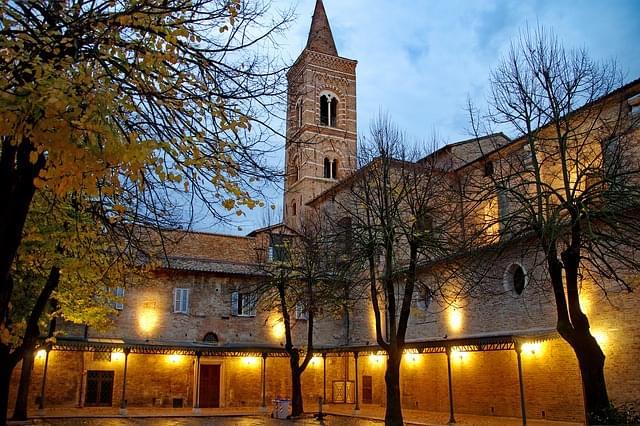
What to see: Ducal Palace of Urbino, Raphael's House, Oratory of St John the Baptist, Cathedral, Albarnoz Fortress.
Weekend ideas in and around Urbino: Excursion to San Marino
From Urbino, in just one hour and 10 minutes by car, you can reach the Republic of San Marino, declared a UNESCO World Heritage Site.
Here you can get to know an area rich in traditions, learn about its food and wine culture and history. Between the historical centre with its monuments, cultural events, activities in nature (such as cycling and mountain trekking) and nine castles, this small state appeals to all types of travellers. Don't forget to discover and taste the typical San Marino cuisine!
Best time of year: if you are interested in outdoor activities, the warm season, from April to October, is recommended. In August, there is an important historical re-enactment known as the Summer Duke's Festival.
Where to stay: Hotels and b&b from €44.00 - see offers
11 - Pisa, Tuscany

What to see: Cathedral and Leaning Tower in Piazza dei Miracoli, Monumental Cemetery, Baptistery of San Giovanni, Piazza dei Cavalieri, Church of Santa Maria della Spina, Museum of Sinopie, Migliarino San Rossore Massaciuccoli Natural Park.
SEE ALSO: What to see in Pisa
Weekend ideas in and around Pisa: Volterra and San Gimignano
Thebest solution is to rent a car and move around freely, perhaps spending the morning in Volterra and the afternoon in San Gimignano, or vice versa.
Volterra is a charming medieval town, although its origins date back many centuries earlier. In fact, there are many important traces of the Etruscan people in the town, with a dedicated museum, the 'Mario Guarnacci' Etruscan Museum, as well as the ruins of the Etruscan Acropolis and the Roman Amphitheatre.
San Gimignano, on the other hand, has been declared a UNESCO World Cultural and Natural Heritage Site. Rich in cultural and gastronomic events, take some time to taste its delicious wines, such as Vernaccia di San Gimignano DOCG, San Gimignano Rosso DOC and I.G.T. Toscana.
SEE ALSO: Excursions from Pisa: the best day trips around Pisa
Best period: April to October, with longer and sunnier days. In June, important historical re-enactments are held, such as the Gioco del Ponte and the Palio di San Ranieri historical regatta.
Where to stay: Hotels and b&b from €61.00 - see offers
12 - Viterbo, Lazio

What to see: Palazzo dei Papi, Terme dei Papi, Monte Cimino, Cathedral, Palazzo dei Priori, Orsini Castle.
SEE ALSO: What to see in and around Viterbo
Weekend ideas in and around Viterbo: Lake Bolsena and Tuscia Viterbese
We are located in Latium, but close to the border with Tuscany, and this has a great influence on the food and wine scene. The cuisine of Tuscia is in fact unique, combining Latian recipes and ingredients with Tuscan ones.
To visit this area at its best, and especially if you want to go as far as Lake Bolsena, the best solution is to rent a car and drive around freely.
Lake Bolsena is the largest volcanic lake in Europe and Lazio and the fifth largest lake in Italy. With its black sand on the shores of the lake and the incredible vegetation growing all over the surrounding area, this is a place that absolutely must be visited!
SEE ALSO: What to see in Tuscia: most beautiful villages, parks and spas
Best period: from spring to mid-autumn. In summer there is also the medieval festival Ludika 1234 (July)
Where to stay: Hotels and b&b from €50.00 - see offers
13 - Perugia, Umbria

Passing along the mediaeval Via Maestà delle Volte and going down the aqueduct, as well as enjoying spectacular views, you will reach the Etruscan Arch. A visit to some local restaurant, perhaps a little hidden, to taste the fabulous Umbrian cuisine is a must.
WHAT TO SEE: Palazzo dei Priori, Fontana Maggiore, National Gallery, Rocca Paolina, Cathedral of San Lorenzo, Piazza IV Novembre, Corso Vannucci.
SEE ALSO: What to see in Perugia
Weekend ideas in and around Perugia: Assisi, Spello and Lake Trasimeno
Thebest way to visit this area is by car, as in some cases you will not even have public transport. Moreover, you will have more freedom and could even visit Assisi and Spello in one day.
Assisi is famous for being the birthplace of St Francis. With its imposing church and 13th-century frescoes, it is definitely worth a visit.
Spello is one of the most beautiful villages in Italy and among its Roman walls and narrow streets you will step back in time!
Finally, at Lake Trasimeno, between Umbria and Tuscany, you can enjoy many outdoor activities: trekking, cycling, adventure park, aqua park, equipped beaches, water sports and much more!
SEE ALSO: Excursions from Perugia: the best day trips around Perugia
Best time of year: For Lake Trasimeno, due to the great possibility of outdoor activities, we recommend the warm season, specifically May to September. In July and December there is the important Umbria Jazz festival, in October the Eurochocolate festival.
Where to stay: Hotels and b&b from €54.00 - see offers
Southern Italy and Islands
Cities | Best period | Weekend idea |
|---|---|---|
Matera, Basilicata | Spring, Christmas | Alberobello, Locorotondo and Cisternino |
L'Aquila, Abruzzo | April to October | Stiffe Caves and Lake Sinizzo |
Salerno, Campania | Spring, Autumn | Amalfi Coast |
Lecce, Apulia | Spring and Summer | Grotta della Poesia, Torre dell'Orso and Otranto |
Crotone, Calabria | May to October | Capo Rizzuto and Protected Marine Area |
Trapani, Sicily | Summer or Christmas | Favignana and Levanzo or Erice and Marsala |
Cagliari, Sardinia | Summer or Autumn | Chia and Teulada or Nuraghe of Villanovaforru |
14 - Matera, Basilicata
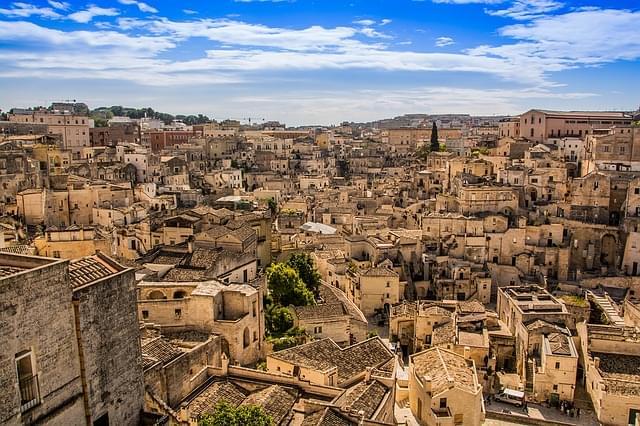
Their particular position has preserved them from enemy sieges over the centuries. The Civita, the heart of the old town, is home to the 50-metre-high bell tower of the Cathedral. The typical cuisine, poor but tasty, is also worth discovering.
WHAT TO SEE: Sassi di Matera, Parco della Murgia Materana, Cathedral, Church of Santa Maria di Idris, MUSMA Museum of Contemporary Sculpture, Church of Saints Peter and Paul.
SEE ALSO: Guide to Matera - what to see, where to eat and what to do in the evening
Weekend ideas in and around Matera: Excursions to Alberobello, Locorotondo and Cisternino
Thebest way to get around in this area is by car, as there are not always public transport connections. Moreover, you will have more freedom and can stop along the way to admire the beautiful landscapes you will find before your eyes!
From Matera you can easily reach Alberobello,just an hour's drive away, as well as the town of Locorotondo, which is only 9 kilometres from Alberobello, perfect to be seen both in one day. And if you still have time at your disposal, you can drive to the town of Cisternino, one of the most beautiful villages in Italy, also in the province of Bari.
Best time: intermediate seasons, when temperatures are pleasant and you don't find the crowds of July and August. At Christmas time, when the living nativity scene is organised.
Where to stay: Hotels and b&b from €33.00 - see offers
15 - L'Aquila, Abruzzo

What to see: Fountain of the 99 Spouts, MunDA National Museum of Abruzzo, Spanish Fort, Basilica of San Bernardino, Basilica of Santa Maria di Collemaggio.
SEE ALSO: Guide to L'Aquila - what to see, where to eat and what to do in the evening
Weekend ideas in and around L'Aquila: Stiffe Caves and Sinizzo Lake
It is best to combine these two stops in one day, as they are only 8 kilometres apart. In order to do this, you will need to hire a car, so that you can move easily between the various points.
The Stiffe Caves are one of the region's main natural attractions and are caves of karstic origin that can only be visited by taking part in a tour.
Lake Sinizzo, on the other hand, is a small jewel with emerald waters, surrounded by groves, an ideal destination for those seeking tranquillity and wanting to spend time in contact with nature. It is also perfect to visit with children, as it has picnic areas, bathing facilities and a playground.
Best time of year: April to October, so you can make the most of the daylight hours and pleasant temperatures, especially if you want to visit Lake Sinizzo
Where to stay: Hotels and b&b from €44.00 - see offers
16 - Salerno, Campania
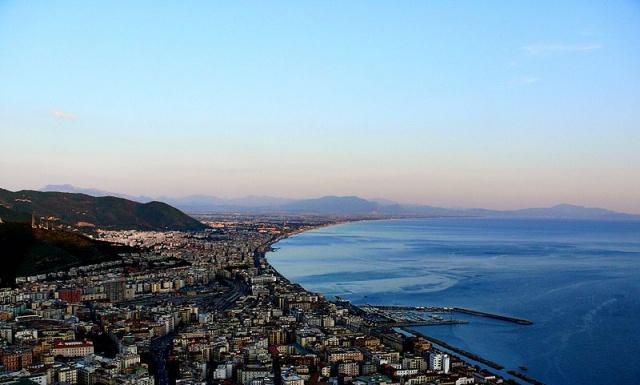
What to see: Cathedral, Minerva's Garden, Arechi Castle, Promenade, Provincial Archaeological Museum
SEE ALSO: Salerno guide - what to see, where to eat and what to do in the evening
Weekend ideas in and around Salerno: Amalfi Coast
To visit the Amalfi Coast you can rely on public transport, in particular the 5120 bus that runs along the entire coast, or rent a car and move around freely. Always take into account the time of year you are there and the traffic, especially if you decide to visit the area in July and August.
The Amalfi Coast is the coastal stretch overlooking the Gulf of Salerno, visited every year by many tourists, both Italians and foreigners, thanks to its beautiful picture-postcard landscapes. Among the many villages and attractions, you cannot miss Amalfi, Positano, Ravello and Scala.
SEE ALSO: Amalfi Coast: 10 Things You Must See
Best time of year: the intermediate seasons, when the temperatures are still pleasant and there is not the hustle and bustle of July and August; the latter absolutely to be avoided if you don't want to get stuck in traffic
Where to stay: Hotels and B&Bs from €60.00 - see offers
17 - Lecce, Apulia

What to see: Basilica of Santa Croce, Cathedral of Santa Maria Assunta, Piazza Sant'Oronzo, Roman Amphitheatre, Lecce Castle, Faggiano Museum, Porta Napoli, Old Town, Church of St Irene.
SEE ALSO: Guide to Lecce - what to see, where to eat and what to do in the evening
Weekend ideas in and around Lecce: Grotta della Poesia, Torre dell'Orso and Otranto
The best way to get around is to rent a car and move around freely, so you can reach all three stops in one day. In fact, the route from Lecce to Otranto, passing along the coast, is only an hour and on the way you can also stop at Grotta della Poesia and Torre dell' Orso.
Grottadella Poesia and Torre dell'Orso are two little corners of paradise. The first is a series of caves with natural pools where you can swim, while the second has a beach with clear, fine sand and crystal-clear water.
Best period: spring and summer, from March to September, when the temperatures are pleasant and the days sunny, but avoid August, as it is very crowded with tourists. However, in August there is the suggestive'Notte della Taranta'.
Where to stay: Hotels and b&b from €52.00 - see offers
18 - Crotone, Calabria

What to see: Capo Colonna, Capo Rizzuto Marine Nature Area, Castle of Charles V, Castle of Santa Severina, Crotone National Archaeological Museum.
SEE ALSO: Crotone guide - what to see, where to eat and what to do in the evening
Weekend ideas in and around Crotone: Capo Rizzuto and Protected Marine Area
For this excursion, you will need to rent a car, so that you can move around freely and, most importantly, visit the marine area without constraints.
Capo Rizzuto is a famous seaside resort in Calabria, located on a promontory and with clear turquoise waters, a marvel for the eyes, including nature, beaches, historical and archaeological points.
Also worth visiting is the Protected Marine Area, established in 1991 with the aim of preserving this unique stretch of coastline from an environmental point of view and protecting the heritage present on the seabed. Various activities are offered, such as diving, transparent-bottom boat tours, an aquarium to learn more about sea creatures and many others.
Best time: from the beginning of May to the end of October; if possible, avoid August as this is a period with a large influx of tourists
Where to stay: Hotels and b&b from €45.00 - see offers
19 - Trapani, Sicily

What to see: Salt pans of Trapani and Paceco, Ligny Tower, Cathedral of San Lorenzo, Salt Museum, Agostino Pepoli Regional Museum, Pepoli Tower.
SEE ALSO: What to see in Trapani
Weekend ideas in and around Trapani: Favignana and Levanzo or Erice and Marsala
Favignana and Levanzo are two islands belonging to the Egadi archipelago. We can define them as two corners of paradise, with their beaches and wonderfully turquoise water. Beware though, these islands are only recommended in the summer, in autumn or winter it is an excursion to be ruled out.
Alternatively, you can dedicate yourself to discovering Erice and Marsala, two characteristic towns in western Sicily. The former is a fascinating city with ancient origins dating back to the Phoenicians and Greeks, while the latter is most famous for the production of its namesake wine, Marsala wine, a DOC liqueur wine.
SEE ALSO: Excursions from Trapani: the best day trips around Trapani
Best period: For the islands, the best period is summer. In winter to visit the Christmas village of Erice and the Living Crib in Custonaci.
Where to stay: Hotels and b&b from €48.00 - see offers
20 - Cagliari, Sardinia
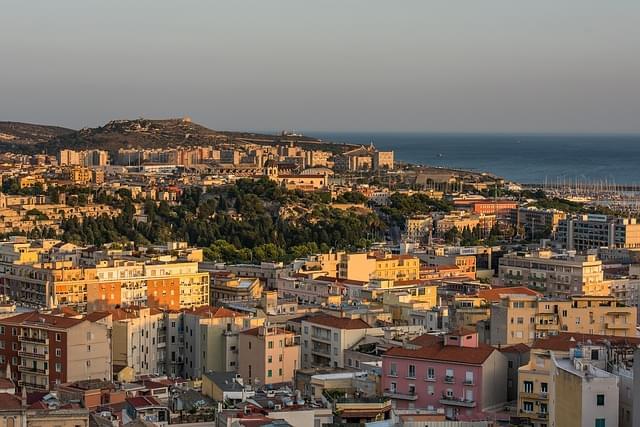
What to see: Bastion of Saint Remy, Molentargius Saline Natural Park, Cathedral of Santa Maria, Cagliari Archaeological Museum, Tower of the Elephant, Calamosca, Sanctuary of Our Lady Bonaria.
SEE ALSO: What to see in Cagliari
Weekend ideas in and around Cagliari: Chia and Teulada or Nuraghe di Villanovaforru
To visit the beautiful surroundings of Cagliari, the best way is to rent a car.
In summer, you should definitely not miss the beaches of Chia and Teulada, driving along the beautiful panoramic road that connects them. You will remain open-mouthed in front of their white beaches and the blue sea.
The alternative is the Nuraghe di Villanovaforru, 55 kilometres from Cagliari, which can also be reached by bus 120 of the ARST company. This is a complex of nuraghi, i.e. ancient stone constructions dating back to the Bronze Age, populated by around 100 inhabitants and consisting of towers, courtyards and wells.
SEE ALSO: Excursions from Cagliari: the best day trips around Cagliari
Best time of year: If you are interested in sea and beaches, the best season is summer, while autumn and winter are better for discovering the hinterland
Where to stay: Hotels and b&b from €54.00 - see offers
Where to go in Autumn, Winter, Summer and Spring
Cities to visit in winter: fancy a nice weekend in the snow or a romantic getaway to a city in the Christmas mood? Here are our recommendations for holidays in Italy in December, January and February.
Cities to visit in spring: do you want to take advantage of the spring long weekends to discover the wonders of Italy? Here are our tips for a holiday in March, April and May.
Cities to visit in Summer: which are the best destinations in the Bel Paese for a summer holiday by the sea or in the mountains? We'll tell you! Here's where to go on holiday in June, July, and August.
Cities to visit in Autumn: if you love traveling in the rainy months to discover small villages and autumn flavours, here are the destinations for a holiday in Italy in September, October and November.
Related articles
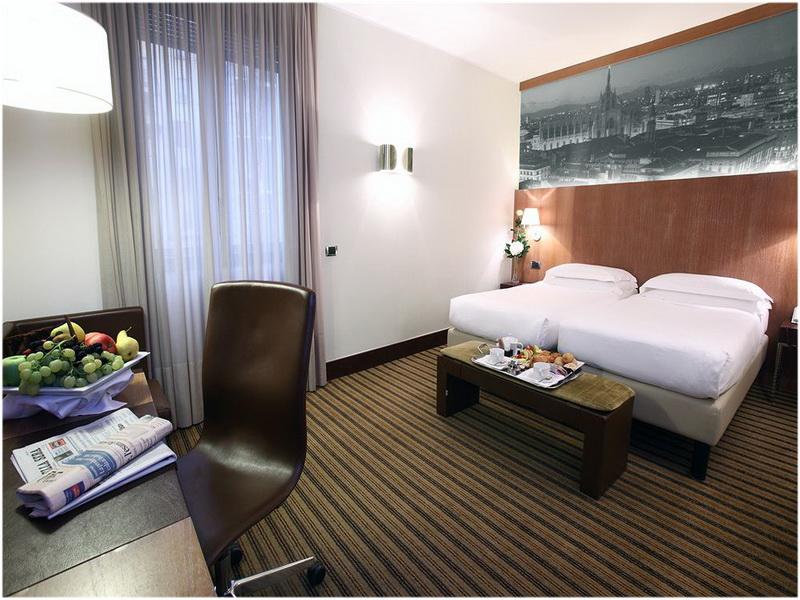
Starhotels Ritz, Milan, Italy
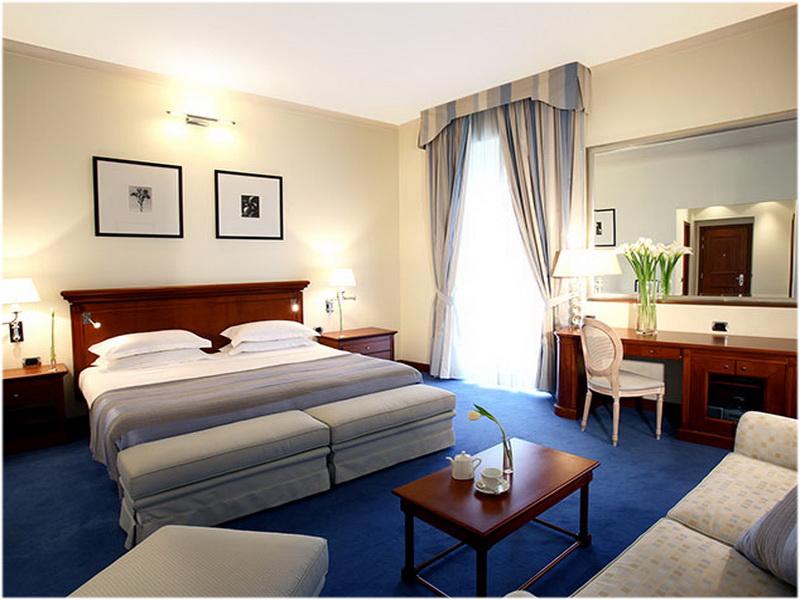
Starhotels Terminus, Naples, Italy

Italy's most beautiful hotels | Best 5-star hotels ranking
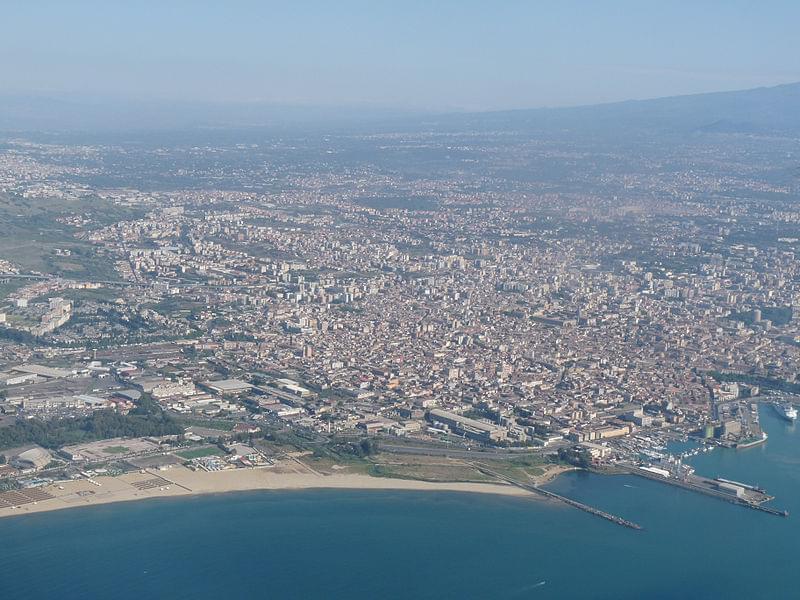
Top 10 Most Populous Cities in Italy
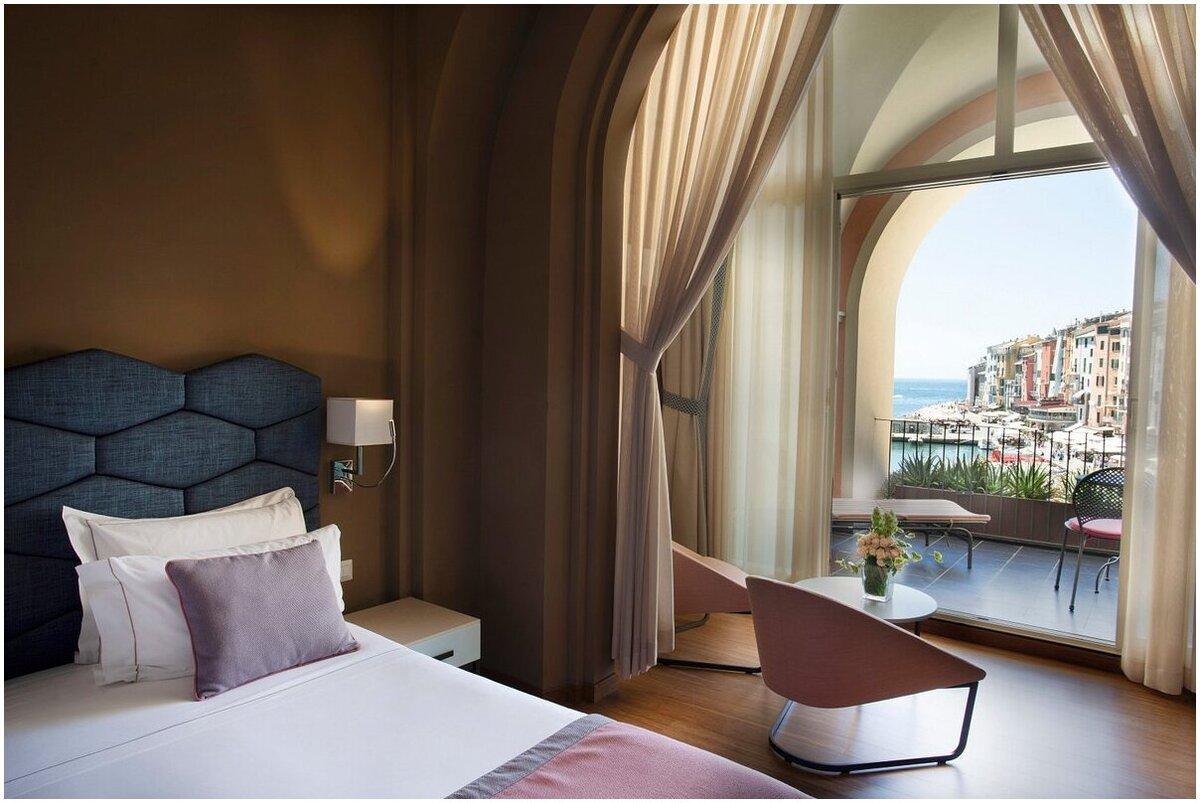
The 10 best luxury hotels in Cinque Terre Italy

The 10 Most Beautiful Panoramic Restaurants in Italy
Do you know the oldest cities in France?
What to do in Montsoreau, one of the Most Beautiful Villages in France located in Maine-et-Loire?